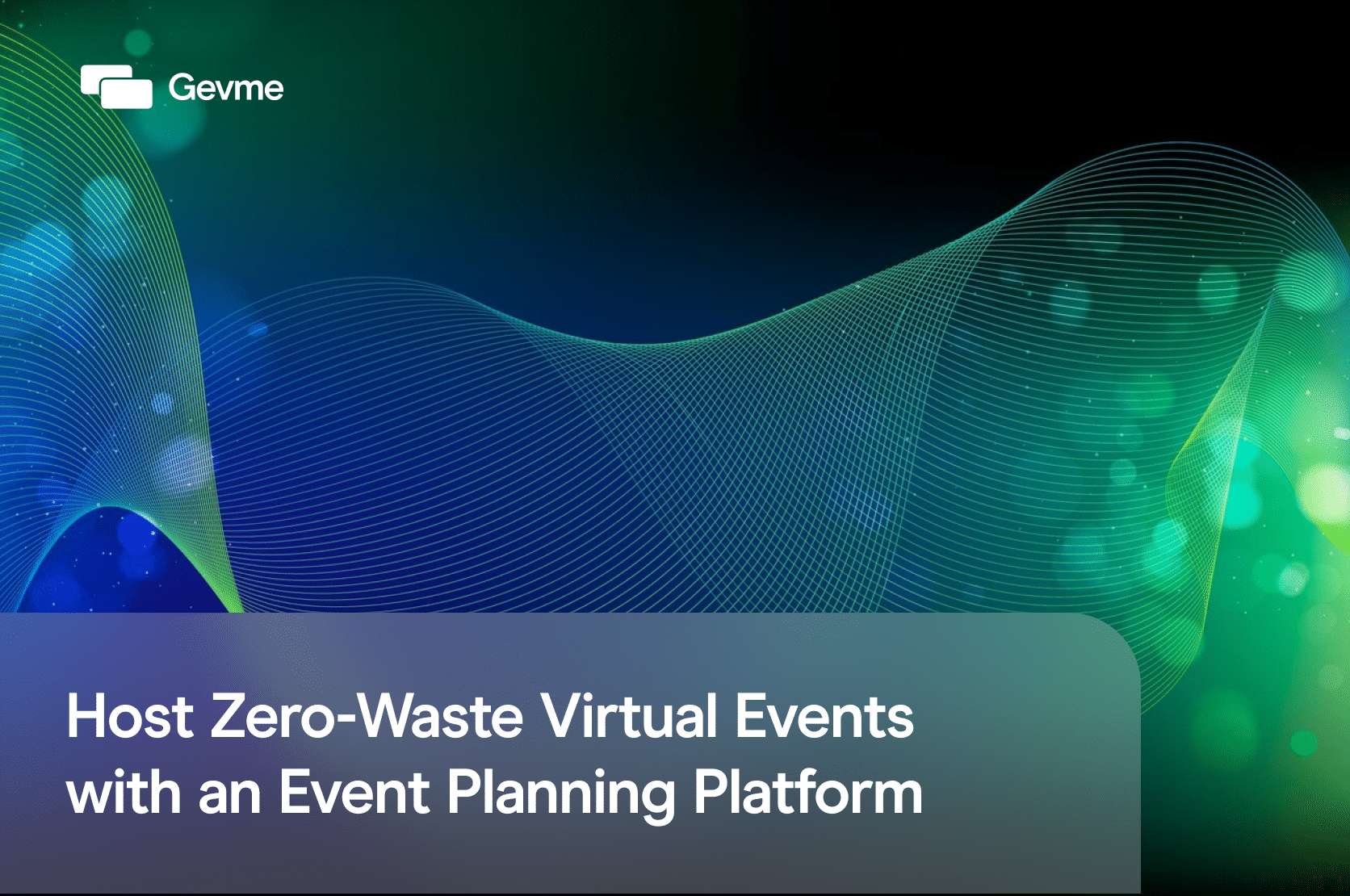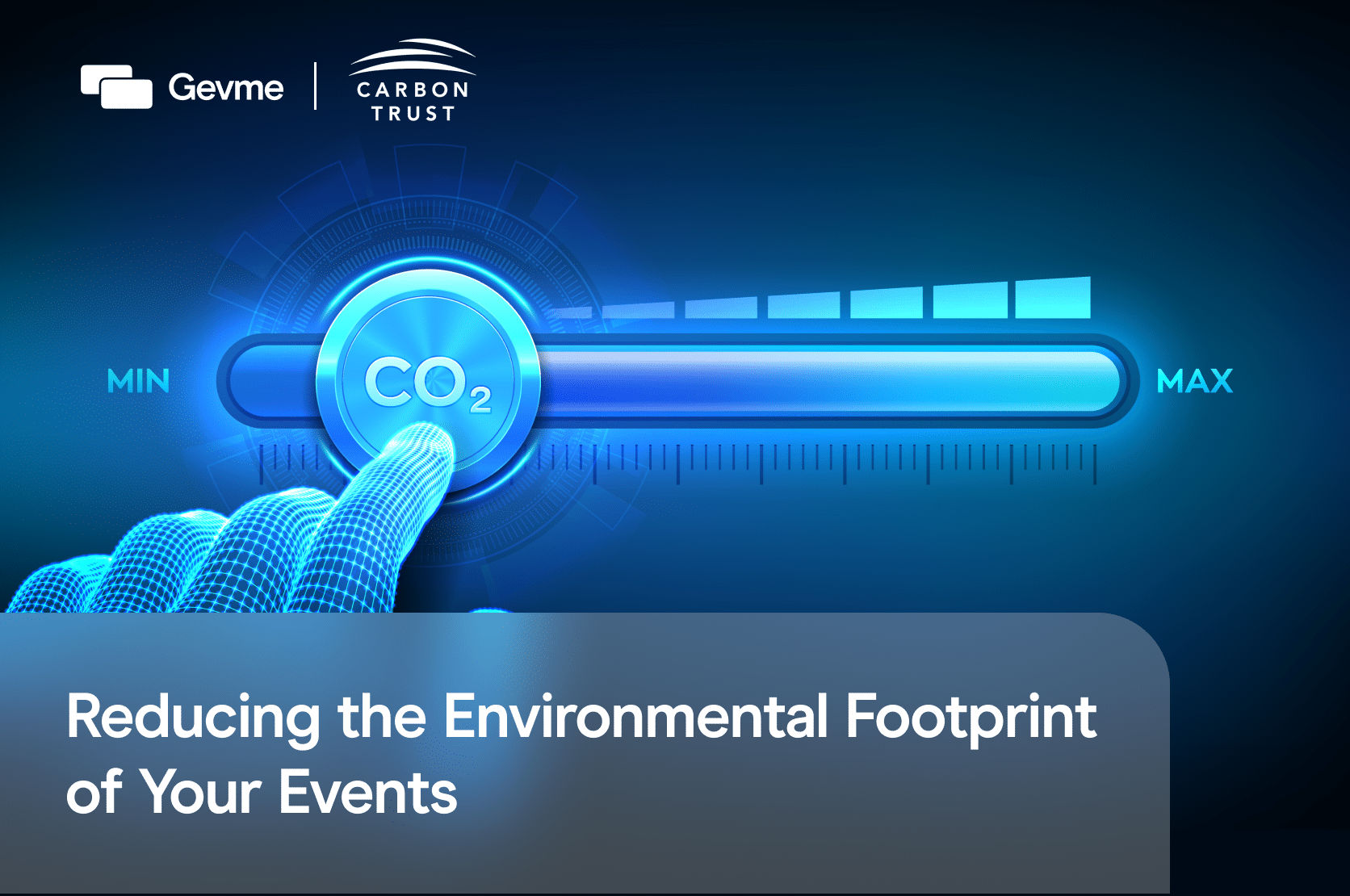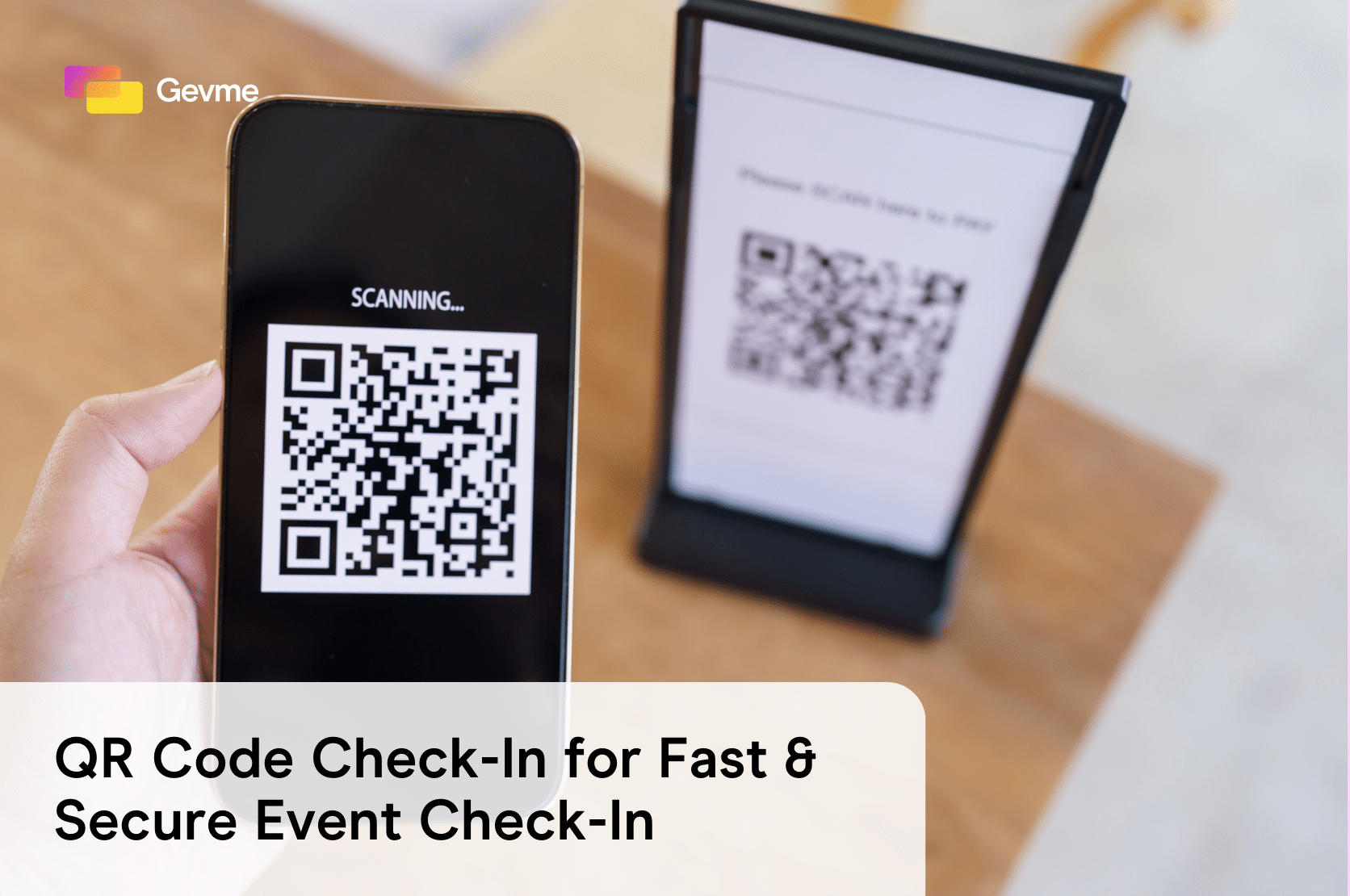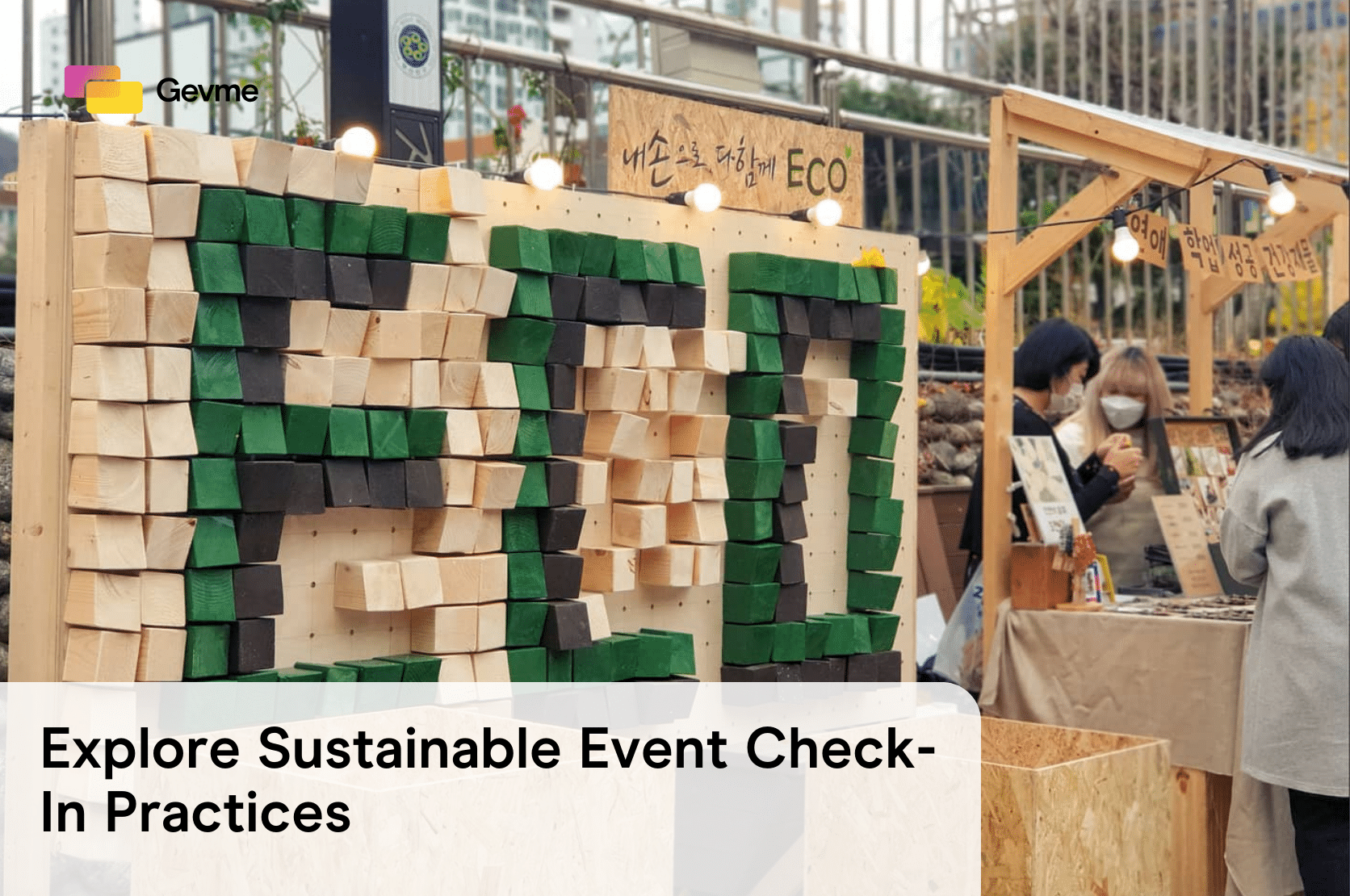In an era where environmental consciousness is not just a preference but a necessity, the events industry is rapidly adapting to embrace sustainability. At the heart of this transformation lies the concept of zero-waste events – a philosophy that challenges us to rethink our approach to event management. Zero-waste events strive to leave a minimal environmental footprint, focusing on reducing waste to the bare minimum and, ideally, leaving no trace behind. This approach aligns perfectly with the rising trend of virtual events, which inherently offer a more sustainable framework compared to traditional in-person gatherings.
The zero-waste philosophy in event management is more than just an eco-friendly trend; it’s a comprehensive approach that encompasses everything from planning and execution to attendee engagement and post-event activities. By minimizing waste and utilizing resources efficiently, event organizers can significantly reduce their environmental impact while delivering memorable and engaging experiences.

Understanding Virtual Events
Virtual events have emerged as a versatile and sustainable alternative to traditional in-person events. They transcend geographical barriers, reduce travel-related carbon emissions, and eliminate the need for physical resources typically associated with event management, such as printed materials and physical infrastructure.
The benefits of virtual events extend beyond just environmental sustainability. They offer unparalleled accessibility, allowing people from all corners of the globe to participate without the constraints of travel and accommodation. This inclusivity not only broadens the event’s reach but also enhances the diversity of participation, leading to a richer exchange of ideas and experiences.
Moreover, virtual events present unique opportunities for innovation in engagement and interaction. Virtual event planning platforms provide a plethora of tools for real-time communication, networking, and content delivery, making it possible to create dynamic, interactive experiences that can rival and sometimes even surpass those of physical events.

In essence, virtual events represent a convergence of sustainability and technology, offering a platform for impactful, inclusive, and environmentally responsible event management. By leveraging digital platforms, event organizers can significantly contribute to the zero-waste movement, paving the way for a more sustainable future in the events industry.
Planning a Zero-Waste Virtual Event
When embarking on the journey to plan a zero-waste virtual event, careful consideration and strategic planning are key. Every decision, from platform selection to participant engagement, needs to align with the overarching goal of sustainability.
- Setting Sustainability Goals: The first step in planning a zero-waste virtual event is to establish clear sustainability goals. These goals should be specific, measurable, achievable, relevant, and time-bound (SMART). For instance, a goal might be to reduce the digital carbon footprint by optimizing streaming quality or to ensure all digital materials are recyclable or reusable. Setting these goals early on guides the decision-making process throughout the planning and execution phases.
- Choosing the Right Virtual Platform: Selecting an appropriate online event management platform is crucial. The platform should align with your zero-waste objectives, offering features like digital registration, online networking opportunities, and virtual exhibition spaces. Additionally, it should be user-friendly and accessible to ensure broad participation without the need for extensive printed instructions or guides.
- Engaging Stakeholders: It’s important to involve all stakeholders, including sponsors, participants, and speakers, in your zero-waste mission. Communicate your sustainability goals and encourage their active participation. This could involve encouraging speakers to use digital resources for their presentations or guiding sponsors towards digital-only promotional materials.
- Resource and Supplier Selection: In planning a zero-waste virtual event, it’s also vital to consider the sustainability practices of your suppliers and partners. This includes everything from the digital tools and services used to the companies involved in any aspect of the event. Selecting partners who share a commitment to sustainability and have demonstrable eco-friendly practices ensures that your event remains aligned with zero-waste principles at every level of operation. This holistic approach to supplier selection reinforces the event’s overall sustainability ethos and amplifies its positive environmental impact.
Key Elements of a Zero-Waste Virtual Event
Creating a zero-waste virtual event involves integrating sustainability into every facet of the event experience, from initial communications to the final follow-up.
- Digital Communications and Invitations: Embrace fully digital channels for all event-related communications. Utilize sophisticated email campaigns, engaging social media strategies, and comprehensive event websites to not only communicate with attendees but also create an interactive pre-event experience. These digital tools offer the flexibility for real-time updates, fostering a dynamic interaction with the audience. Additionally, they allow for tracking engagement and gathering feedback, making it easier to tailor the event experience to attendee preferences, all while maintaining a zero-waste approach.
- Sustainable Virtual Venue Selection: The selection of a virtual venue goes beyond visual appeal; it involves a careful assessment of its functional and environmental impact. Choose platforms that prioritize energy efficiency, offering high-quality streaming services that consume less power. Platforms hosted on servers powered by renewable energy sources are ideal, as they contribute significantly to reducing the event’s overall carbon footprint. Additionally, platforms that offer scalability and flexibility in terms of bandwidth usage can further optimize energy consumption based on real-time attendance.
- Minimizing Digital Carbon Footprint: While virtual events reduce physical waste, their digital carbon footprint, primarily from energy consumption for streaming and server use, is an important consideration. To mitigate this, event planners should focus on optimizing streaming quality to balance between high-quality content and energy efficiency. Utilize digital tools and platforms that are designed for low energy consumption. When possible, partnering with hosting services that use renewable energy sources or those committed to carbon-neutral practices can further reduce the event’s environmental impact.

- Eco-friendly Attendee Engagement and Participation: Cultivating a culture of sustainability among attendees is key. Encourage attendees to adopt eco-friendly practices during the event, such as digital note-taking or using energy-saving modes on their devices. Innovatively designed virtual ‘green challenges’ can actively involve attendees in sustainability efforts, turning passive viewers into active participants. Similarly, incorporating sustainability-themed interactive sessions or workshops can both educate and engage attendees on environmental issues, making them an integral part of the event’s eco-friendly narrative.
Innovative Features of Virtual Event Planning Platforms for Zero-Waste Events
The adoption of innovative features in virtual event platforms is a cornerstone in the planning of zero-waste events. These platforms are not just a venue; they are a toolset that drives sustainability.
- Integrated Sustainable Practices: Many virtual event planning platforms now integrate features that promote sustainability. This includes tools for tracking the environmental impact of the event, options for digital-only content and communications, and functionalities that support energy-efficient streaming. These integrated features help maintain a minimal environmental footprint throughout the event.
- Digital Waste Reduction Tools: Digital waste, though less tangible than physical waste, still has an impact. Platforms that offer data-efficient streaming, optimized content delivery, and cloud-based resources help in reducing this digital waste. Additionally, features that encourage attendees to use resources responsibly, such as downloadable content in eco-friendly formats, contribute significantly to the zero-waste goal.
- Carbon Footprint Tracking: Some virtual event planning platforms now include advanced functionalities to track and display the estimated carbon footprint savings achieved by hosting the event virtually instead of in person. This feature is invaluable in highlighting the environmental benefits of virtual events. It provides tangible data on carbon emission reductions, offering a clear picture of the event’s positive impact on the environment. This tracking can also serve as an educational tool, raising awareness among attendees about the importance of carbon footprint reduction and encouraging them to adopt more sustainable practices in their personal and professional lives.
- Eco-Friendly Networking Options: Energy efficiency extends to the networking features of virtual event planning platforms. Innovations in this area include video conferencing tools optimized to use less bandwidth, thereby reducing energy consumption. Additionally, platforms might offer chat-based networking alternatives, which consume considerably less power compared to video interactions. These eco-friendly networking options not only contribute to the sustainability of the event but also ensure that networking remains accessible to attendees with varying levels of internet bandwidth, thus promoting inclusivity.
Challenges and Solutions
While planning a zero-waste virtual event is a noble endeavour, it comes with its unique set of challenges. Addressing these effectively is crucial for the success of the event.
- Technical Challenges: One common obstacle is ensuring effective participation regardless of attendees’ locations or technical capabilities. To overcome this, provide comprehensive instructions and tutorials on accessing the event. Ensure the chosen platform is compatible across a variety of devices and internet speeds. Establishing a responsive technical support team available before and during the event can also help address any technical issues promptly, ensuring a smooth experience for all participants.
- Engagement Challenges: Maintaining attendee engagement in a virtual setting requires creative strategies. Incorporate interactive elements like live Q&A sessions, enabling real-time interaction between speakers and attendees. Offer virtual networking opportunities through breakout rooms or networking lounges. Implement interactive polls and surveys to gather instant feedback and keep the audience involved. Gamification, such as leaderboards, challenges, and rewards for participation, can also add an element of fun and competition, keeping the audience engaged and motivated throughout the event.
- Sustainability Communication: Communicating the event’s sustainability goals and practices is crucial. This can be achieved through regular pre-event communications, including emails and social media posts, highlighting the zero-waste initiatives and their importance. During the event, incorporate reminders and educational content about eco-friendly practices. Engaging storytelling and visual presentations about the event’s sustainability impact can also resonate well with the audience.
- Sustainability Measurement: Measuring the effectiveness of sustainability efforts in a virtual event can be challenging. Utilize event platforms that offer detailed analytics and reporting features. These tools can track metrics such as participant energy usage, digital waste reduction, and levels of engagement in sustainability-focused activities. Post-event surveys can also provide valuable insights into the attendees’ perceptions of the sustainability efforts. This data is crucial not only for evaluating the success of the current event but also for identifying areas for improvement in future events.
Role of Gevme in Zero-Waste Events
Gevme’s platform plays a pivotal role in facilitating sustainable, zero-waste virtual events. Its comprehensive suite of features is specifically designed to minimize environmental impact and endorse eco-friendly practices in a digital setting:
- Digital Event Management: Gevme enables a complete digital management of events, from registrations to feedback collection, ensuring minimal use of physical resources.
- Virtual Networking and Engagement: Through features like virtual exhibition spaces and online networking, Gevme encourages entirely digital interactions, eliminating the need for physical materials and reducing waste.
- Digital Resource Distribution: With options for digital swag bags, brochures, and event information, Gevme replaces the need for physical handouts, significantly cutting down on paper waste.
- Energy-Efficient Platform Design: Gevme’s platform is optimized for low energy consumption, contributing to a reduced digital carbon footprint of virtual events.
- Sustainability Analytics: Gevme offers tools to track and analyze the sustainability impact of your virtual event, aiding in understanding and communicating the eco-friendly benefits of going virtual.
- Eco-Friendly Attendee Participation: The platform encourages attendees to participate in eco-friendly practices, such as digital note-taking and using energy-saving modes on their devices.
- Carbon Footprint Awareness: Through features like the GoGreen add-on, Gevme helps raise awareness about the carbon footprint of events and offers solutions for offsetting it, even in a virtual context.

Conclusion
In conclusion, the journey to hosting a successful zero-waste virtual event is facilitated significantly by the use of innovative event management platforms. With their suite of eco-friendly features and tools, platforms like Gevme empower event organizers to seamlessly integrate sustainability into every facet of their events. By leveraging these digital solutions, event professionals can not only achieve their sustainability goals but also set new standards in the industry, paving the way for a more environmentally responsible future in event management.








